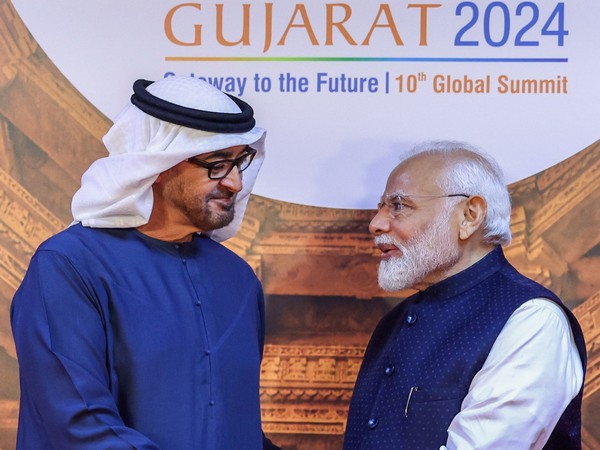The Gulf region has become an increasingly important strategic partner of India and an integral part of its ‘extended neighbourhood’ under Prime Minister Narendra Modi, a report by the Italian Institute for International Political Studies (ISPI) stated.
PM Modi’s second-last visit before the Lok Sabha elections was to the United Arab Emirates (UAE) and Qatar
India’s relationship with the Gulf states has transformed ever since PM Modi assumed office in 2014. The Gulf has become a foreign-and security-policy priority for India, in which New Delhi too has increasing interests and influence, writes Viraj Solanki, a Research Fellow for South and Central Asian Defence, Strategy and Diplomacy, IISS in the report for the ISPI.
Earlier, the relationship was focused only on energy, trade and Indian expatriates, the relationship evolved into a new framework encompassing political relations, investment, and defence and security cooperation.
Today, India’s priorities include attracting investments to increase economic growth, addressing regional security concerns (including in the Arabian Sea and the Gulf), and enhancing its regional presence and influence.
Prime Minister Modi’s visit to UAE in 2015 was the first by an Indian prime minister to the UAE in 34 years, while his August 2019 visit to Bahrain was the first ever made by an Indian prime minister. His recent UAE visit was his seventh to the Gulf nation.
India has a large stake in Gulf stability given that approximately 8.8 million Indian nationals reside in the region.
The Gulf Cooperation Council (GCC) is India’s largest regional bloc trading partner. Trade with the GCC comprised 15.8 per cent of India’s total trade in FY2022-23, compared to 11.6 per cent of total trade with the European Union.
The UAE has consistently been India’s principal trading partner within the Gulf and is India’s third-largest trading partner overall, with Saudi Arabia in fourth place.
India’s growing strategic and economic interests in the Gulf region have resulted in a new framework for India-Gulf ties based on investment, political relations, and defence and security cooperation.
The increased Gulf investments in India have also increased economic cooperation between India and the Gulf. Most notably, with India becoming an increasingly attractive economic market, Saudi Arabia and the UAE had announced investment targets in India of USD 100 billion and USD 75 billion, respectively.
The UAE is the seventh largest source of foreign direct investment (FDI) in India, currently at USD 15.3 billion. Saudi Arabia had invested USD 3.2 billion as of March 2022, while Qatar invested over USD 1.5 billion last year.
In August 2023, the Qatar Investment Authority also announced an investment of USD 1 billion in Reliance Retail Ventures. Additionally, in February 2024, Saudi Aramco stated that there were serious discussions with Indian companies to enhance the company’s downstream investments in India.
Moreover, in September 2023, Modi and Crown Prince Mohammed Bin Salman signed an agreement to set up a joint task force to fast-track the project in Ratnagiri.
India engaged with the I2U2 grouping and joined the India-Middle East-Europe Economic Corridor (IMEC). During PM Modi’s visit to the UAE in February, India and the UAE counterparts also signed an inter-governmental framework agreement on IMEC.
The ISPI report further emphasised that personal relations between Prime Minister Modi and Gulf leaders, including with the UAE’s President Sheikh Mohamed bin Zayed Al Nahyan, have deepened India’s political relationships with those countries, building trust and a willingness to work together on sensitive issues. This has also resulted in increased defence and security cooperation, including counter-terrorism, maritime security and naval cooperation.
India stands to gain much more by broadening its relations with the Gulf, but researcher Solanki in the report for ISPI stated that New Delhi also faces challenges in developing political and economic ties due to the deteriorating security environment, in the Middle East.
The outbreak of the Israel-Hamas war and shipping attacks in the Red Sea directly impacted India’s energy security and economic growth.
As the Modi 3.0 government has taken the charge after third consecutive victory for PM Modi, India’s foreign policy priorities will include strengthening India’s relations with the Gulf.
India will likely become an increased ‘strategic partner’ for the Gulf states. Managing mutual challenges, while focusing on growing political, economic and security interests, will be the key to enabling India-Gulf relations to strengthen and become more ambitious, the report added. -ANI


